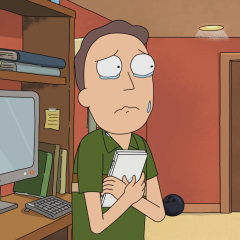Une lecture intéressante sur la pertinence d'une bonne partie des jobs
-
Contenu similaire
-
- 143 réponses
- 13 979 vues
-
Votre liste de lecture + le livre que vous recommandez le plus.
Par Paladin.e,
- philosophie
- lecture
- (et 3 en plus)
- 5 réponses
- 667 vues
-
- 88 réponses
- 2 774 vues
-
« Je pense qu’une grande partie de notre société est devenue […] castrée en quelque s
Par FabienLAmour,
- 0 commentaire
-
La lune est un fidèle compagnon. elle ne part jamais. elle est toujours là, regardant
Par FabienLAmour,
- 0 commentaire
-





Déchet(s) recommandé(s)
Un déchet à ajouter?
Il faudra cliquer là ou là.
Devenir éboueur
L'inscription est gratuite, rapide et presque pas humiliante.
Je suis prêt!Se connecter
Supposant bien sûr que vous ne soyez pas déjà banni.
Je veux revenir!